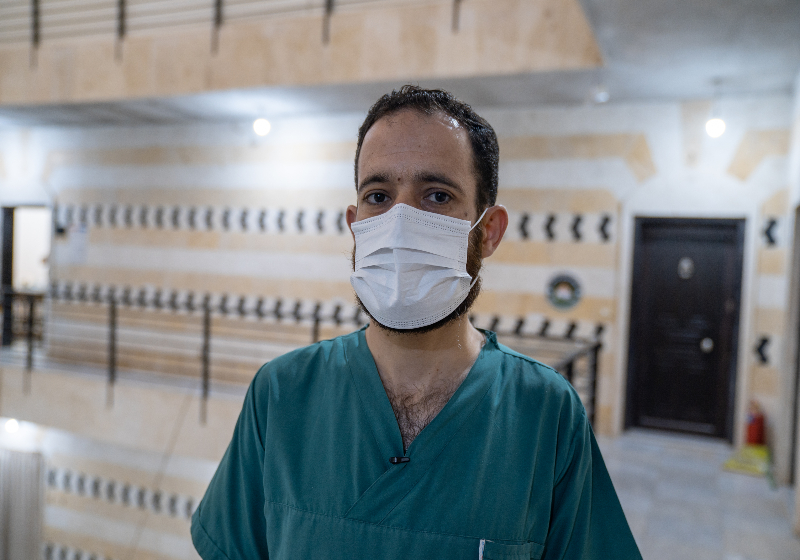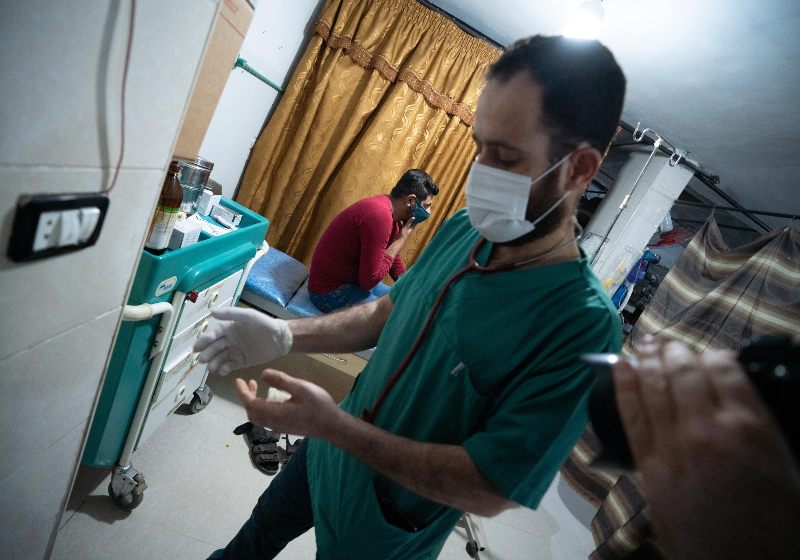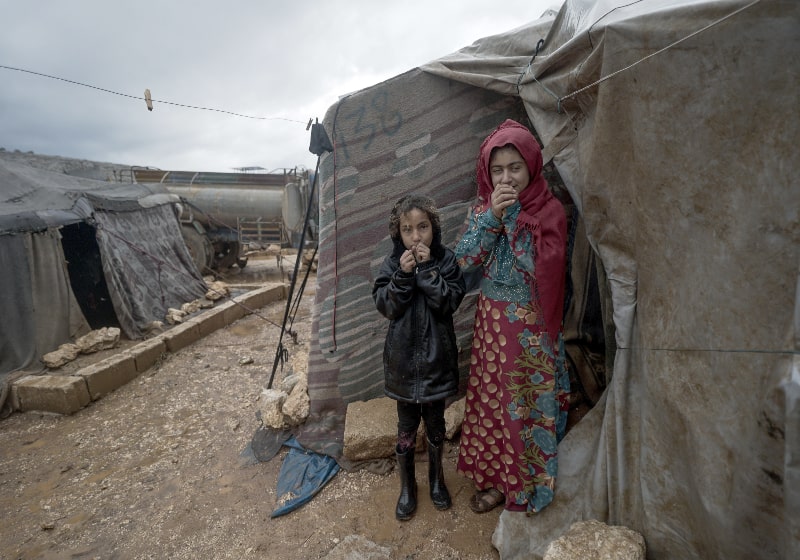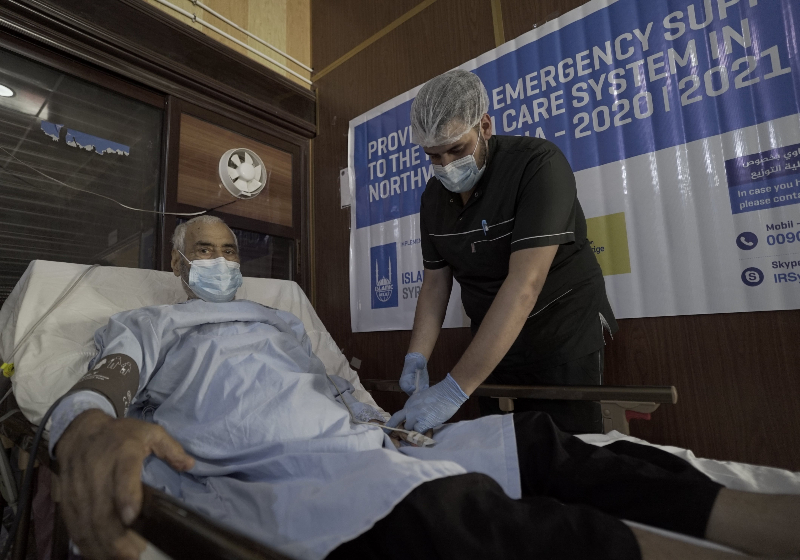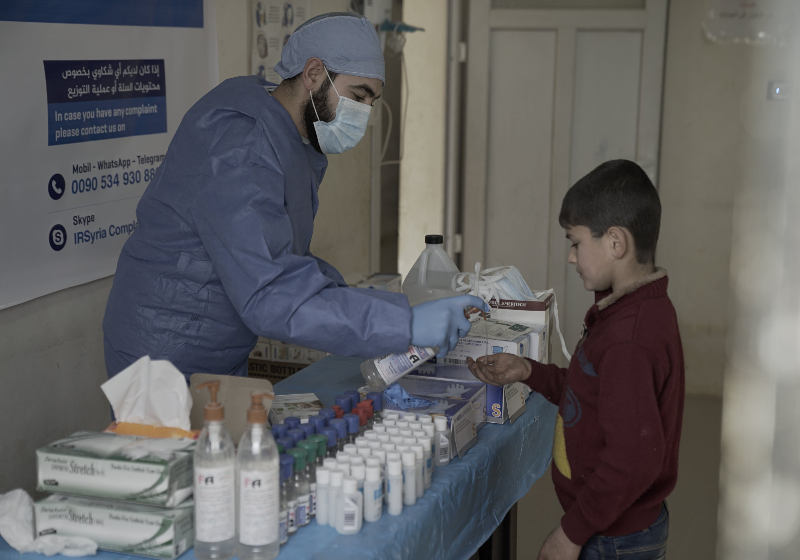Looking to the future, Dr Ihsan feels uncertain.
Thinking about 10 years into the future feels impossible. At the moment, we can barely think about the next month as we don’t know what is going to happen. Many people are dreaming about going back to their homes.
We know that more than 1.5 million were displaced in the last few months. So, we dream about peace in this area, we dream about all displaced people being able to go home, leaving their tents and their miserable situation.
For a population that has lived through a decade of crisis, Covid-19 is just another tragic reality to deal with.
Although people are very fearful of becoming ill, Dr Ihsan reports that, to many, the virus is just another crisis that pales in comparison to the horrors that they have already lived through:
People here are not very scared about Covid-19, because they have already been through so much.
They have dealt with airstrikes, displacement, miserable living conditions and losing loved ones. So, many consider Covid-19… [but it is] nothing compared to the injuries caused by air strikes, psychological trauma or the poverty they have been living in.
Here at Islamic Relief, we’re at the forefront of the response to the Covid-19 outbreak in Syria. We’re supporting 84 hospitals and medical centres in the north-west to help around 200,000 people.
How we’re helping people in Syria
As part of efforts to reduce the spread of coronavirus, we gave 84 health facilities personal protective equipment (PPE) including masks, gloves, and medical gowns, as well as no-contact thermometers, hand disinfectant gels, disinfectant sprays and other sterilisation solutions.
In addition, we’ve also been:
- Running awareness-raising campaigns in health facilities and establishing quarantine areas
- Providing specific training on appropriate disinfection procedures and measures to limit Covid-19 transmission for staff across 20 key health facilities
- Offering financial support by paying the salaries of 150 doctors and nurses
- Running mobile emergency units by converting trucks into ambulances and transportable operating rooms in order to take healthcare to where it’s needed most
Help us continue to be a lifeline for those still suffering after a decade of crisis.
Please donate today towards our Syria appeal and help save lives.
